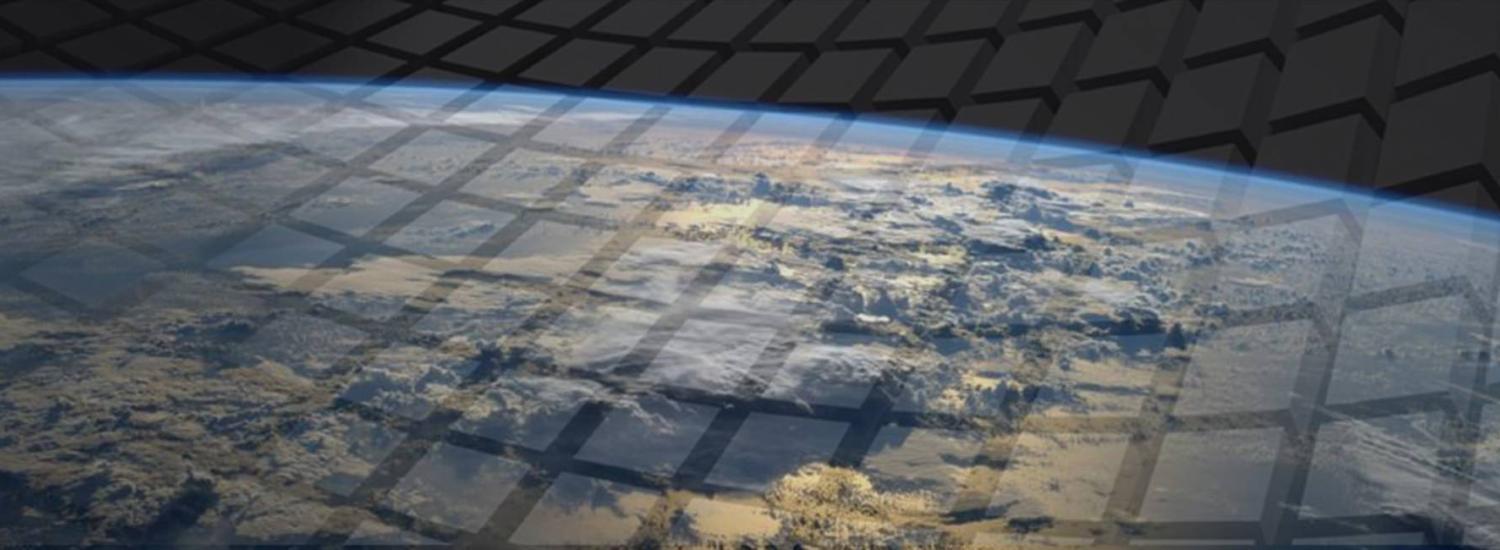Study Illuminates Public Perceptions of Climate Engineering
New research provides insight into people’s perceptions of large-scale climate manipulation technology

Many people expressed serious concerns when presented with the idea of deliberately manipulating Earth's climate, according to a focus-group study conducted in four places around the world. But despite those negative feelings, they remained open about "geoengineering" or climate intervention ideas, in the face of a changing climate and uncertain future.
Emissions from human activity impact climate change. Future technologies may be able to remove carbon from the atmosphere. Photo: Cloud Factory, Flickr
In the new study, published in the September-October issue of Climatic Change, CIRES and collaborators around the world used focus group discussions to study the ways non-scientists sought to understand large-scale "climate engineering" technologies. They found that participants in all places focused less on the details of the specific technologies, and more on the meaning of those technologies, including the reality of climate-related risks to their communities and the broader world.
“People’s opinions develop not so much from the idea of the technology itself, but rather from what that technology means,” said Lisa Dilling, Associate Professor in Environmental Studies, Director of CIRES Western Water Assessment and Associate Director of the Center for Science and Technology Policy Research. “The meaning people attach to technology says a lot about their values, and what kind of world they see themselves living in.”
Dilling, along with Rachel Hauser of the National Center for Atmospheric Research led the U.S. component of a focus-group study to explore what people think of climate engineering technologies. The goal was not to complete a total, representative survey of the globe, but rather start to understand how people form opinions and make sense of these controversial concepts—which for now exist mainly in the minds of scientists.
During focus groups in the United States, Japan, New Zealand and Sweden, researchers began by asking about how participants thought about environmental change and climate change specifically. Then the researchers neutrally described the technologies proposed for climate engineering to see how focus group participants reacted and how people made sense of the largely unfamiliar concepts. The technologies described included: pulling large quantities of carbon dioxide from the atmosphere with giant scrubbers and storing it in underground, and reflecting solar radiation away from the Earth with mirrors deployed in space or brightened clouds.
In the future, solar radiation may be deflected from Earth using specialized mirrors. Photo: Wiki
Many focus group members reacted first with nervous laughter. Most participants had not heard of climate engineering. So they made sense of these unfamiliar concepts by creating analogies to what they already knew. During the sessions, participants compared climate engineering to technologies such as transport infrastructure, the introduction of species to new areas or large-scale nuclear power. Even though all focus group participants were recruited because they said they were interested in environmental problems, few knew much about the climate engineering technologies, and many met the ideas with skepticism.
Their apprehension came in four major flavors:
- What happens if the technologies backfire with unintended consequences?
- Are these solutions treating the symptoms of climate change rather than the cause?
- Shouldn’t we just change our lifestyle and consumption patterns to fight climate change, making climate engineering a last resort?
- Isn’t there a greater need to address political solutions to reduce our emissions?
For many participants, their perception of climate engineering echoed their personal beliefs about how humans should interact with nature. For example, the focus group held in Boulder, Colorado—a community well-known for its eco-conscious mindset—emphasized the need to reduce carbon footprints by driving less or choosing sustainable foods.
Another topic that came up during focus groups discussions in all four locations: If large-scale climate engineering technologies were deployed, would it give people an excuse to keep rapidly burning fossil fuels, extending our dependence on them? Participants wondered: If technology existed to clean up our messes—would we continue to carelessly make them?
Finally, most participants felt it might be necessary to "keep the door open" for climate engineering research—especially when moderators introduced the idea of a future "climate emergency" such as rapid environmental change. Overall, participants felt that mitigation and adaptation were strongly preferred options for responding to climate change, with climate engineering seen as a last resort.